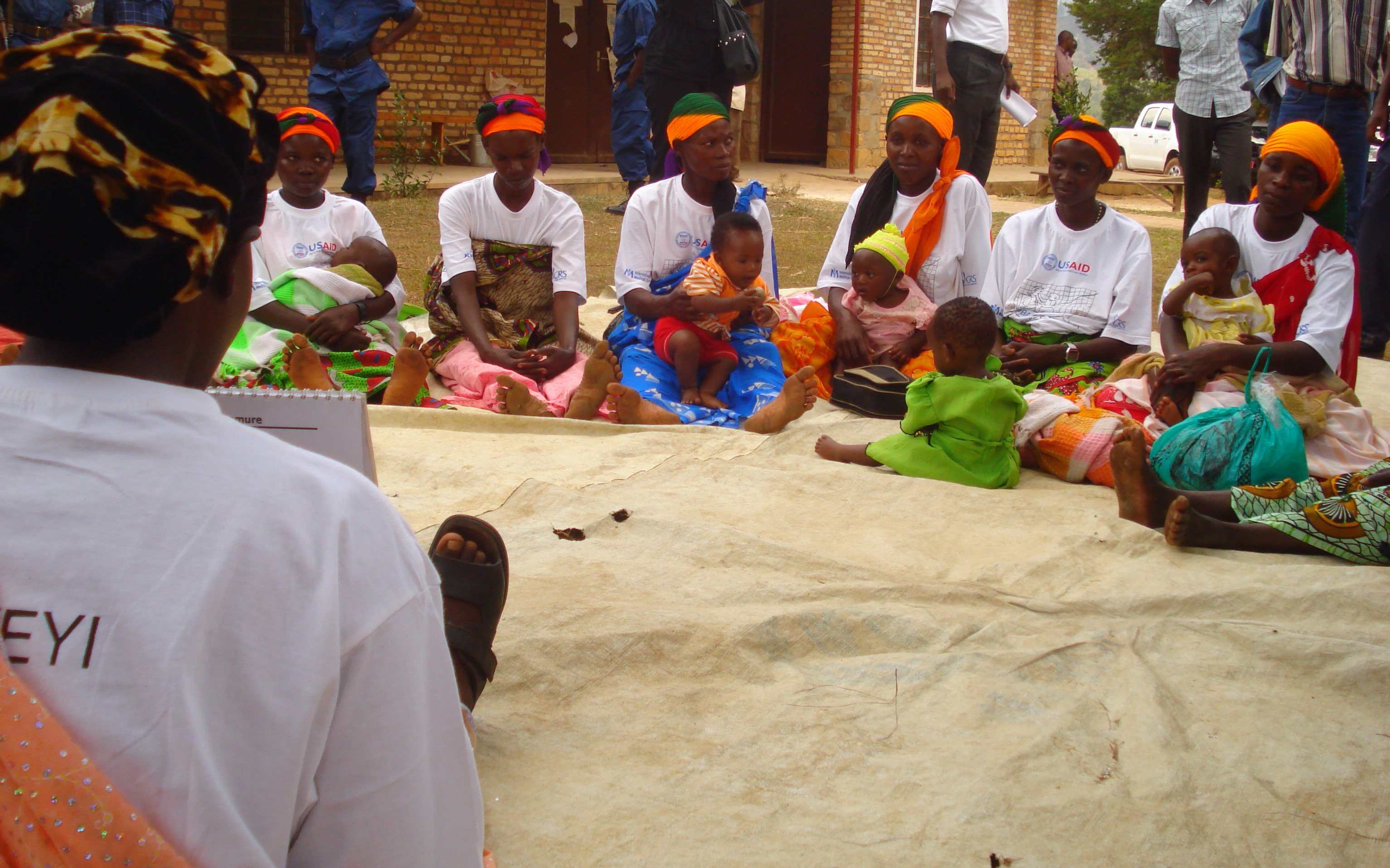This post is the sixth in a series on a research project in Guatemala and Burundi that evaluated how to optimize food assistance programs for maximum impact. Read the first piece here, second here, third here, fourth here, and fifth here.
The global health and economic crises caused by the COVID-19 pandemic are decimating livelihoods, threatening food security, and increasing mortality rates. One of the gravest consequences is that by the end of 2022, 9.3 million more children may have suffered from wasting (low weight-for-height) than otherwise would have, and the effects could follow them for the rest of their lives.
The pandemic is only the most recent reminder of the troubling lack of evidence on how to prevent wasting, as research has tended to focus more on the development of treatment strategies to save lives than on identifying interventions to keep children from becoming acutely malnourished in the first place.
This prompted us to take a fresh look at the data collected for our evaluation of the Tubaramure food-assisted maternal and child health and nutrition (FA-MCHN) program implemented in Burundi between 2010 and 2014 (the name means “let’s help them grow” in Kirundi).
Burundi is a small, impoverished country riven by genocide and a 12-year civil war that ended only in 2005. Before the intervention began in 2010, a year that saw Burundi again beset by political unrest, around half the study households were suffering from hunger, and 65% of young children were found to be stunted and 7% to be wasted. During the study period, consumer price inflation soared, reaching 18% by 2012, which was reflected in a sharp increase in food insecurity in the study area.
Tubaramure’s main objective was to prevent undernutrition. The program was available to all pregnant women and to children under 2 and their mothers in two poor provinces in eastern Burundi. It included three main components: (1) a monthly family food ration of corn-soy blend (CSB) and micronutrient-fortified vegetable oil to increase household food security and an individual ration of CSB to improve the nutritional status of pregnant women, women up to 6 months postpartum, and 6-to-24-month-old children; (2) an intervention that strengthened and promoted preventive health services; and (3) a behavior change communications campaign designed to promote adequate health, hygiene, and nutrition behaviors and practices during pregnancy and the first two years of a child’s life.
The fragile setting and the focus on prevention makes Tubaramure a good case study for determining whether FA-MCHN interventions can protect against wasting in poor communities during periods of crisis. This is critical not just in the context of the current pandemic, but in any situation where a population’s food security is threatened—including violent conflict or the aftermath of natural disasters all of which are projected to increase and/or intensify under climate change. As COVID-19 has turned our attention to resilience-building once again, this is an area that cannot be ignored.
How the Burundi Tubaramure program helped prevent wasting
Our evaluation compared three groups that received the Tubaramure program over different periods (starting either from pregnancy or birth) and for different durations (the full first 1,000 days or less) to a control group that had access to the same improved health services as the program recipients, but did not receive the encouragement to use them. While the prevalence of wasting increased over time in the control group (from 6.5% to 8%), it decreased in the intervention groups (from 7.3% to 5.1%). The net estimated effect (3.3 percentage points) was thus large: Tubaramure reduced child wasting approximately by half. The program’s strongest protective effects were found in children 6 to 12 months old, the age leading up to the peak incidence of wasting (at 12 months) in this population. The worst-off children benefited most—those whose mothers and household heads had no education and who lived in the poorest households. No effect was found in one of the intervention groups—the one that did not receive food rations during pregnancy. This suggests that that improving maternal nutrition might be an important pathway to impact on wasting in children.
Previously, we showed that Tubaramure reduced the prevalence of child stunting and anemia in mothers and children and symptoms of child illness and fever; that it had a small positive impact on children’s motor and language development; and that it reduced household food insecurity and improved diets.
Our findings show that food-assisted maternal and child health and nutrition programs are an effective tool for protecting the most vulnerable children from wasting during economic and political crises and other shocks. Because such programs address, successfully, multiple negative impacts at once—lowering rates of child stunting and wasting and maternal and child anemia, improving household food security and diets, and more—they are both an effective and cost-effective strategy for protecting vulnerable households, mothers, and children in troubled times. Although this was not a COVID-19 study, its findings are relevant to the current pandemic and could help shape responses that not only provide immediate relief but also may guard individuals and their communities against the lasting effects of undernutrition.
Jef L. Leroy is a Senior Research Fellow with IFPRI’s Poverty, Health and Nutrition Division; Deanna K. Olney is a PHND Senior Research Fellow; Marie Ruel is Director of PHND; Tracy Brown is an IFPRI Senior Editor.
This blog post is based on a project made possible by support from the United States Agency for International Development (USAID), the Food and Nutrition Technical Assistance III Project (FANTA) managed by FHI 360, and the CGIAR Research Program on Agriculture for Nutrition and Health (A4NH).







